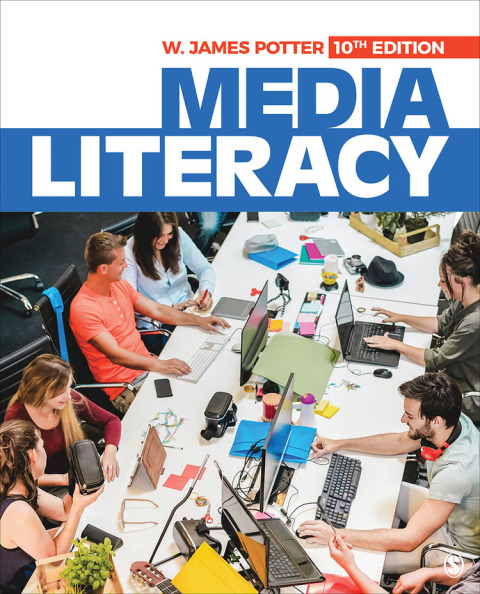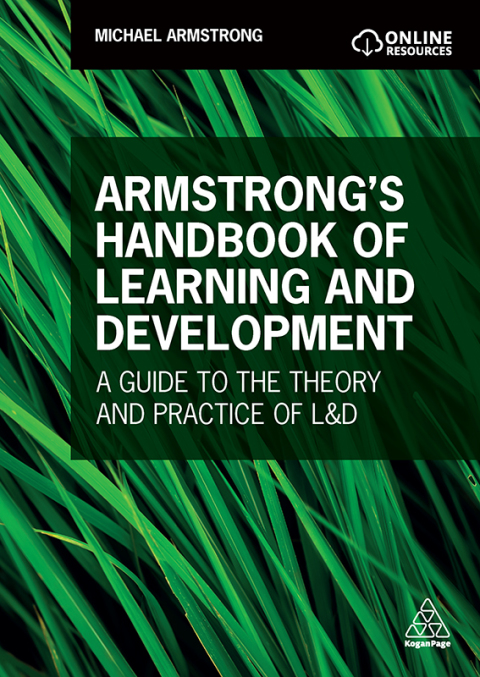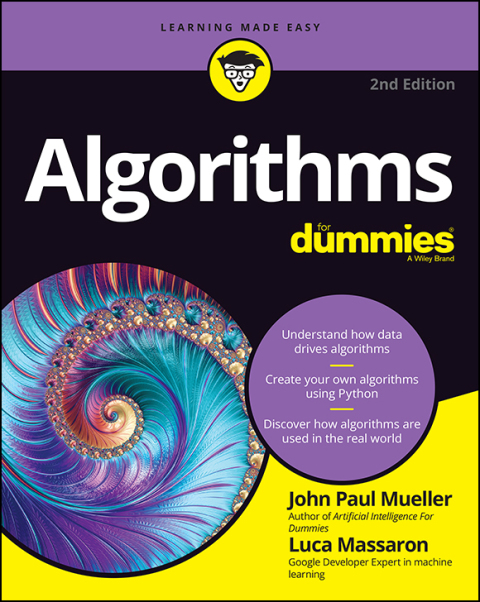Description
Efnisyfirlit
- Preface
- Acknowledgments
- About the Author
- PART I • INTRODUCTION
- Chapter 1 • Why Increase Media Literacy?
- The Information Problem
- Growth Is Accelerating
- High Degree of Exposure
- Keeping Up
- Dealing with the Information Problem
- Our Mental Hardware
- Our Mental Software
- Automatic Routines
- Advantages and Disadvantages
- The Big Question
- Summary
- Further Reading
- Keeping Up to Date
- Chapter 2 • Media Literacy Approach
- What Is Media Literacy?
- The Three Building Blocks of Media Literacy
- Skills
- Knowledge Structures
- Personal Locus
- The Definition of Media Literacy
- Media Literacy Is Multidimensional
- Media Literacy Is a Continuum, Not a Category
- The Development of Media Literacy
- Advantages of Developing a Higher Degree of Media Literacy
- Appetite for Wider Variety of Media Messages
- More Self-Programming of Mental Codes
- More Control over Media
- Summary
- Further Reading
- Exercise
- PART II • EFFECTS
- Chapter 3 • Broadening Our Perspective on Media Effects
- Four-Dimensional Analytical Tool
- Timing of Effects
- Valence of Effects
- Consumer Perspective
- Media Business Perspective
- Intentionality of Effects
- Consumer Perspective
- Media Business Perspective
- Type of Effects
- Cognitive-Type Effect
- Belief-Type Effect
- Attitudinal-Type Effect
- Physiological-Type Effect
- Emotional-Type Effect
- Behavioral-Type Effect
- Macro-Type Effects
- Using the Four-Dimensional Analytic Tool
- The Example of Addiction
- The Analysis
- Becoming More Media Literate
- Summary
- Further Reading
- Exercises
- Chapter 4 • How Does the Media Effects Process Work?
- Media Effects Are Constantly Occurring
- Manifested Effects and Process Effects
- Baseline Effects and Fluctuation Effects
- Factors Influencing Media Effects
- Baseline Factors
- Demographics
- Developmental Maturities
- Cognitive Abilities
- Personal Locus
- Knowledge Structures
- Sociological Factors
- Media Exposure Habits
- Fluctuation Factors
- Content of the Messages
- Context of Portrayals
- Cognitive Complexity of Content
- Motivations
- States
- Degree of Identification
- Process of Influence
- Thinking about Blame
- Becoming More Media Literate
- Summary
- Further Reading
- Keeping Up to Date
- Exercises
- PART III • INDUSTRY
- Chapter 5 • Development of the Mass Media Industries
- The Evolution Pattern
- Stages of Evolution
- Innovation Stage
- Penetration Stage
- Peak Stage
- Decline Stage
- Adaptation Stage
- Comparisons across Mass Media
- Revolution Pattern of Development
- The Analog Media
- Channel
- Decision Making
- Messages
- The Digital Media
- Channel
- Decision Making
- Messages
- Range of Experiences
- Convergence
- Profile of Mass Media Workforce
- Summary
- Further Reading
- Keeping Up to Date
- Exercises
- Chapter 6 • Economic Perspective
- The Media Game of Economics
- The Players
- The Goal
- Characteristics of the Game
- Nature of Competition
- Complex Interdependency among Players
- Importance of Valuing Resources Well
- Digital Convergence
- Media Industry Strategies
- Maximizing Profits
- Increasing Revenue
- Minimizing Expenses
- Constructing Audiences
- Attracting People to Niche Audiences
- Conditioning Audiences
- Reducing Risk
- Consumers’ Strategies
- Default Strategy
- Media Literacy Strategy
- Summary
- Further Reading
- Keeping Up to Date
- Exercises
- PART IV • AUDIENCE
- Chapter 7 • Audience: Industry Perspective
- The Shift from Mass to Niche Perspective on Audience
- What Is a Mass Audience?
- Rejection of the Idea of a Mass Audience
- The Idea of Niche Audiences
- Identifying Niches
- Geographic Segmentation
- Demographic Segmentation
- Social Class Segmentation
- Geodemographic Segmentation
- Psychographic Segmentation
- Twelve American Lifestyles
- VALS Typology
- Attracting Audiences
- Appeal to Existing Needs and Interests
- Cross-Media and Cross-Vehicle Promotion
- Conditioning Audiences
- Summary
- Further Reading
- Exercises
- Chapter 8 • Audience: Individual Perspective
- Information Processing
- Filtering
- Meaning Matching
- Meaning Construction
- Analyzing the Idea of Exposure to Media Messages
- Exposure and Attention
- Physical Exposure
- Perceptual Exposure
- Psychological Exposure
- Attention
- Exposure States
- Automatic State
- Attentional State
- Transported State
- Self-Reflexive State
- Information-Processing Traits
- Cognitive Traits
- Field Independency
- Crystalline Intelligence
- Fluid Intelligence
- Conceptual Differentiation
- Emotional Traits
- Emotional Intelligence
- Tolerance for Ambiguity
- Non-impulsiveness
- The Media Literacy Approach
- Processing Information
- Tools
- Summary
- Further Reading
- Exercises
- PART V • CONTENT
- Chapter 9 • Entertainment
- What Is Entertainment?
- Audience’s Perspective
- Programmers’ Perspective
- Patterns
- Content Analysis Method
- Character Patterns
- Controversial Elements
- Health
- Body Image
- Telling Stories as a Business
- Story Formulas
- General Story Formula
- Genres
- Comedy
- Drama
- Romance
- Challenges
- Different Media
- Changing Public Taste
- Dealing with Risk
- Becoming Media Literate with Entertainment Messages
- Appreciate the Blend of Reality and Fantasy
- Appreciate Story Formulas
- Summary
- Further Reading
- Keeping Up to Date
- Exercises
- Chapter 10 • Advertising
- Advertising Is Pervasive
- Advertising Strategies
- Traditional Strategy
- Digital Strategies
- Tools of Advertising
- Tools for Identifying Audiences
- Tools for Persuading Audiences
- Search Engine Optimization
- Recommender Systems
- Ratings Services
- Buying Funnel
- Becoming More Media Literate with Advertising
- Analyze Your Personal Needs
- Analyze Ads
- Look for Differences
- Evaluate the Ads
- Summary
- Further Reading
- Keeping Up to Date
- Exercises
- Chapter 11 • News
- Dynamic Nature of News
- Rise and Fall of “Big News”
- Shift to Online Sources of News
- Changes in the Need for News
- Changes in News Content
- More Immediate
- More Local
- Shorter News Stories
- Multimedia Stories
- Different Perspectives on News
- Political Philosophy Perspective
- Professional Journalism Perspective
- Economic Perspective
- Marketing Perspective
- Standards for Evaluating News
- By Type of Producer
- By News Criteria
- By Accuracy
- By News Perspective
- How Can We Become More Media Literate with News?
- Exposure Matters
- Quality Matters
- Be Analytical
- Evaluate Facts
- Evaluate the News Story
- Be Skeptical
- Summary
- Further Reading
- Keeping Up to Date
- Exercises
- Chapter 12 • Competitive Experiences
- Attraction to Digital Games
- Who Are the Players?
- Why the Attraction?
- The Game-Playing Experience
- Creating Digital Game Platforms
- Designing Digital Games
- Marketing Digital Games
- Types of Games
- Massively Multiplayer Online Role-Playing Games (MMORPGs)
- Digital Games as Sport
- Addiction to Digital Games
- Addiction Defined
- The Addiction Progression
- Displacement
- Dependence
- Addiction
- Media Literacy
- Personal Implications
- Broader Concerns
- Summary
- Further Reading
- Keeping Up to Date
- Exercise
- Chapter 13 • Social Networking Experiences
- Friendship
- History
- Attraction
- Effects
- Negative Effects
- Both Negative and Positive Effects
- Dating
- Attraction
- Dangers
- Living
- Second Life
- Farmville
- The Sims
- Attraction to Virtual Worlds
- Opinion Sharing
- Blogs
- Attraction
- Media Literacy with Social Networking
- Summary
- Further Reading
- Keeping Up to Date
- Exercise
- Chapter 14 • Acquisition Experiences
- Information
- Music
- Video
- Shopping
- Acquisition Issues
- Shopping Addiction
- Piracy
- The Economy
- Media Literacy with Acquisition Platforms
- Summary
- Further Reading
- Keeping Up to Date
- Exercises
- PART VI • SPRINGBOARD
- Chapter 15 • Helping Yourself and Others to Increase Media Literacy
- Helping Yourself
- Ten Guidelines
- 1. Strengthen Your Personal Locus
- 2. Develop an Accurate Awareness of Your Exposure Patterns
- 3. Acquire a Broad Base of Useful Knowledge
- 4. Think About the Reality–Fantasy Continuum
- 5. Examine Your Mental Codes
- 6. Examine Your Opinions
- 7. Change Behaviors
- 8. Become More Skilled at Designing Messages
- 9. Do Not Take Privacy for Granted
- 10. Take Personal Responsibility
- Illustrations of Milestones
- Cognitive Ladder
- Emotional Ladder
- Moral Ladder
- Aesthetic Appreciation Ladder
- Examples of Levels of Literacy
- Helping Others
- Interpersonal Techniques
- Interventions
- Public Education
- Current Situation
- Barriers
- What Can You Do?
- Societal Techniques
- Summary
- Keeping Up to Date
- Exercises
- INTRODUCTION TO THE ISSUES CHAPTERS
- Issue 1 • Ownership of Mass Media Businesses
- Delineating the Issue
- Arguments against Concentration of Ownership of Media Companies
- Arguments for Concentration of Ownership of Media Companies
- Evidence of Concentration
- Trend toward Concentration
- Factors Driving the Trend
- Efficiencies
- Regulation
- Deregulation
- Evidence for Harm
- Increased Barriers to Entry
- Reduced Level of Competition
- Reduced Number of Public Voices
- Changes in Content
- Your Own Informed Opinion
- Expand Your Perspective
- Analyze the Evidence
- Ownership and Control
- Harm
- Recognize Your Values
- Localism
- Efficiency
- Conclusion
- Further Reading
- Keeping Up to Date
- Applying Media Literacy Skills
- Issue 2 • Sports
- Delineating the Issue
- The Money Cycle
- Players
- Owners and Leagues
- Television Networks
- Advertisers
- The Public
- Olympics
- Video Gaming
- The Big Picture
- Your Own Informed Opinion
- Cost–Benefit Analysis
- Implications
- Extend Your Knowledge
- Further Reading
- Keeping Up to Date
- Applying Media Literacy Skills
- Issue 3 • Media Violence
- Delineating the Issue
- Public’s Perspective
- Limiting the Scope of Harmful Effects
- Equating Violence with Graphicness
- Focusing on Frequency over Context
- Producers’ Faulty Beliefs
- Violence Is Necessary to Storytelling
- Blame Others, Not Producers
- Your Own Informed Opinion
- Implications for Individuals
- Implications for Producers
- Moving Beyond Faulty Thinking
- Further Reading
- Applying Media Literacy Skills
- Issue 4 • Privacy
- Delineating the Issue
- Criminal Threats to Your Privacy
- Stealing Private Information
- Direct Theft
- Indirect Theft
- Economic Purposes
- Political Purposes
- Hijacking Computers
- Destroying Information
- Noncriminal Threats to Your Privacy
- Monitoring Activity
- Collecting and Selling Information
- Spamming
- Controlling
- Public Opinion and Regulations
- Public Opinion
- Regulations
- Your Own Informed Opinion
- Map Your Expectation of Privacy
- Information Assessment
- Threat Assessment
- Privacy Strategy
- Remove Private Information
- Correct Inaccuracies
- Subvert Invasion of Privacy Practices
- Limit Cookies
- Download Software to Protect Your Computer from Threats to Your Privacy
- Continually Monitor Threats
- Further Reading
- Keeping Up to Date
- Applying Media Literacy Skills
- Glossary
- References
- Index






